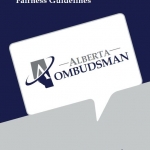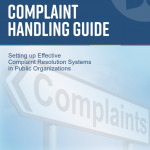In Alberta, the health professions are regulated under the Health Professions Act (HPA). This piece of legislation acts as a legal framework by which the health professions or ‘colleges’ operate and regulate its activity. Self-regulated colleges are governed by a board of directors or council made up of elected members of the profession along with government-appointed members.
The college’s role, as outlined in the HPA is clear. It:
a. must carry out its activities and govern its regulated members in a manner that protects and serves the public interest,
b. must provide direction to and regulate the practice of the regulated profession by its regulated members,
c. must establish, maintain and enforce standards for registration and of continuing competence and standards of practice of the regulated profession,
d. must establish, maintain and enforce a code of ethics,
e. carry on the activities of the college and perform other duties and functions by the exercise of the powers conferred by this Act, and
f. may approve programs of study and education courses for the purposes of registration requirements.
In 2001, the enactment of the HPA called into force the oversight responsibility of the Ombudsman with the health professions colleges. Any person may make a complaint about a regulatory college in accordance with the Ombudsman Act.
Health college decision-makers looking for resources to better apply standards of administrative fairness within their organization may find our Fundamentals of a Complaints Mechanism and our Internal Complaint Mechanism Checklist to be of use.
For more information about how the Ombudsman determines administrative fairness, please visit our Administrative Fairness Guidelines page.





